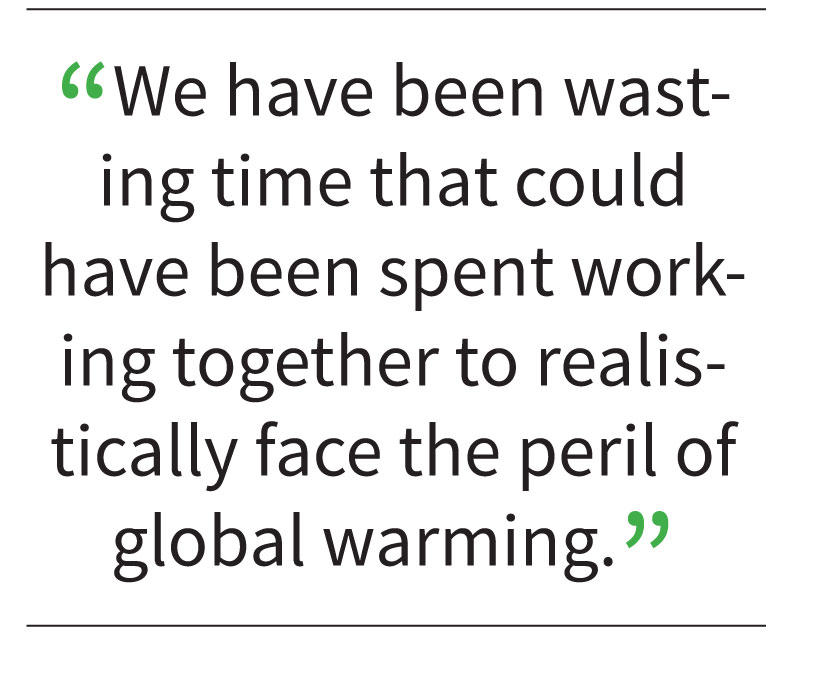Published in the December 19, 2018 – January 1, 2019

Two weeks later the Trump administration released a 1,600-page document about the impact of climate change. The report is called the National Climate Assessment and this fourth installment was prepared by 13 federal departments and agencies, including the Department of Defense. The message of this document is the effects of global warming are already battering the United States — and our nation’s people will suffer the danger of increasingly devastating climate catastrophes in coming decades. Scientists warn climate change is intensifying, but there’s limited time to take action. Global warming “is transforming where and how we live and presents growing challenges to human health and quality of life, the economy, and the natural systems that support us,” according to the report.
In the past 100 years, the average temperature of the continental United States rose 1.8 degrees Fahrenheit. By 2050 it could see as much as 2.3 additional degrees in warming. The Arctic state of Alaska is experiencing even greater temperature changes. Its citizens are seeing a staggering rate of warming that is rapidly changing ecosystems with melting glaciers and thawing of the permafrost tundra.
Here in the West, mountain ranges are retaining much less snow throughout the year. This significantly reduces the supply of fresh water for the many communities, including here the Bay Area, which receive much of their water from the Sierras. Wildfires are devouring ever larger areas — and the fire season is now much longer than it was in the past century.
Deaths from temperature extremes will be especially harsh. The city of Phoenix could see 120 to 150 days per year of 100 degrees or hotter by the end of the century. With rising sea levels flooding coastline communities in the Southeast, increasingly powerful hurricanes hitting the Atlantic states and intense heatwaves in the Mid-West, many Americans will be forced to migrate to other states, including California. These environmental refugees would only intensify the Golden State’s challenges dealing with a rapidly growing population.
Other nations will also suffer the impacts. America has produced a globalized food system and our farmers import a lot of food to other nations. Climate change will put greater risk on the global nature of that system, causing potential famines that could lead to social distress and political collapse.
And that’s why we started this editorial by describing the smoke that filled South Valley from the Camp Fire blaze. That fire killed at least 88 people and destroyed 18,804 structures. Global warming played a significant role in that natural disaster. The long drought from climate change built up the fuel in the forest land and the dry winds stirred the flames to an inferno intensity.
But the smoke that cast a grey tint over the Veterans Day events also serves as a reminder that climate change is a national security threat. The leaders in our nation’s military recognize the double danger from global warming. Our naval bases around the world are put at risk as seas rise. And the social and political breakdown caused by climate change’s devastation on the environment and resources — especially water — could result in the flareup of major wars with other nations.
We’re behind the eight-ball in dealing with climate change. If we fail to take action, America will see substantial damages to our economy, environment, and human health. We have been wasting time that could have been spent working together to realistically face the peril of global warming. We need wise leadership now to protect America from the enemy of our own arrogance.






